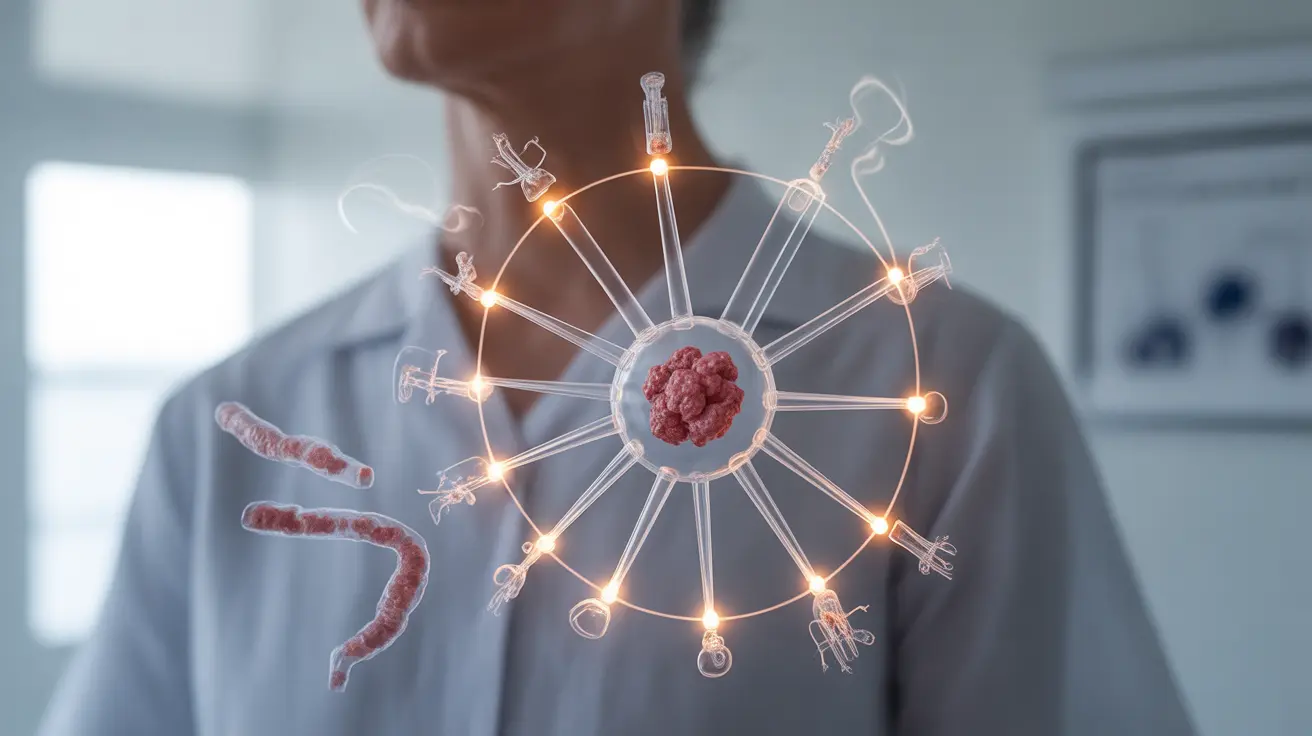Esophageal cancer is a serious condition that affects the tube connecting your throat to your stomach. While the diagnosis can be overwhelming, modern medicine offers various treatment approaches that can potentially cure this cancer, depending on several factors including the stage at diagnosis and the patient's overall health.
Understanding your treatment options and their effectiveness is crucial for making informed decisions about your care. This comprehensive guide explores the different approaches to treating esophageal cancer, from non-surgical options to combination therapies.
Understanding Esophageal Cancer and Its Treatment Landscape
Treatment success for esophageal cancer depends largely on early detection and the cancer's stage at diagnosis. While surgery has traditionally been considered the primary treatment option, several non-surgical approaches have shown promising results, especially when used in combination with other therapies.
Non-Surgical Treatment Options
Chemotherapy and Radiation Therapy
Combined chemotherapy and radiation therapy, known as chemoradiation, can be highly effective in treating esophageal cancer. This approach may be used as:
- Primary treatment for patients who cannot undergo surgery
- Neoadjuvant therapy to shrink tumors before surgery
- Palliative care to manage symptoms and improve quality of life
The success rate of chemoradiation varies depending on the cancer stage and individual patient factors. Some studies show that certain patients may achieve complete remission through this combination therapy alone.
Endoscopic Treatments
For early-stage esophageal cancer, endoscopic treatments offer less invasive alternatives to surgery. These include:
- Endoscopic mucosal resection (EMR)
- Radiofrequency ablation
- Photodynamic therapy
These procedures are particularly effective for small, superficial tumors and can often preserve the structure and function of the esophagus.
Immunotherapy Breakthroughs
Recent advances in immunotherapy have opened new possibilities for treating esophageal cancer. This innovative approach works by boosting the body's immune system to fight cancer cells. Immunotherapy may be particularly beneficial for:
- Patients with advanced or metastatic disease
- Those who haven't responded well to other treatments
- Cases where the cancer shows specific genetic markers
Diagnostic Process and Early Detection
Successful treatment often hinges on early detection. Common diagnostic procedures include:
- Endoscopy with biopsy
- Imaging tests (CT, PET scans)
- Molecular testing to guide treatment decisions
Frequently Asked Questions
Can esophageal cancer be cured without surgery, and what are the chances of success?
Yes, esophageal cancer can potentially be cured without surgery in certain cases, particularly when caught early. Success rates vary widely depending on the cancer stage, but some patients achieve complete remission through combinations of chemotherapy, radiation therapy, and newer treatments like immunotherapy. Early-stage cancers treated with endoscopic methods can have success rates of up to 95% in carefully selected patients.
What are the typical symptoms of esophageal cancer, and how is it diagnosed?
Common symptoms include difficulty swallowing, unexplained weight loss, chest pain, and persistent heartburn. Diagnosis typically involves an endoscopy with biopsy, followed by imaging studies to determine the cancer's stage. Early diagnosis significantly improves treatment outcomes.
How effective is chemotherapy and radiation therapy in treating esophageal cancer, especially for those who cannot undergo surgery?
Chemoradiation can be highly effective, particularly when used together. For patients who cannot undergo surgery, this combination therapy can achieve tumor control and, in some cases, complete remission. Response rates vary but can reach 50-70% in properly selected patients.
What are the benefits and risks of endoscopic treatments for early-stage esophageal cancer?
Endoscopic treatments offer less invasive options with shorter recovery times and fewer complications compared to surgery. Benefits include preserved organ function and reduced hospitalization. However, these treatments are only suitable for early-stage cancers and carry risks including bleeding, infection, and the possibility of incomplete cancer removal.
How does immunotherapy work for esophageal cancer, and who might benefit from this treatment option?
Immunotherapy works by enhancing the body's natural immune response against cancer cells. It's particularly effective in patients whose tumors express specific proteins (like PD-L1) and may be used alone or in combination with other treatments. This approach has shown promising results in advanced cases, especially when conventional treatments have failed.




